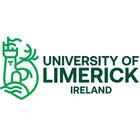This entry route is designed to provide you with a gateway to better choice if youre unsure which area youd like to study. You can avail of a broad common first year which will introduce you to various topics in Biological and Chemical Sciences. Having gained a better understanding of each subject area, you then choose your preferred pathway to specialise for the remaining 3 years of your degree programme. At UL, you get to try before you decide. The degree would provide an excellent foundation for students considering application to graduate entry medical school or to a post-graduate career in Bioscience/Life Sciences area.
Maintaining both the quality of life and a clean and healthy environment is now a major concern of Government, employers, non-governmental organisations and citizens. The EU now has a very comprehensive environmental policy, and as a Member State, Ireland is obliged to act in accordance with this policy.
More stringent environmental requirements are being placed on industry and community in areas such as energy usage, waste minimisation, waste management, recycling, sustainability, water and air quality. Consequently, there is a strong demand for graduates with a scientific understanding of environmental and health and safety issues, together with a full knowledge of technological and management methods available to help improve the quality of our environment. What makes Environmental Science at the University of Limerick distinctive is its relevance to industry and business, through a focus on environmental technology, environmental management, sustainability and health & safety in the workplace.
The degree programme is four years in duration. Early modules are concerned with building up your understanding of science relevant to the environment (biology, ecology, chemistry, computing, mathematics and physics). The basic concepts used in these subjects are applied to specific environmental science applications. Later modules in the programme focus on the areas of environmental management, environmental technology, environmental impact assessment, waste management, sustainability and conservation ecology, environmental monitoring and health & safety.





